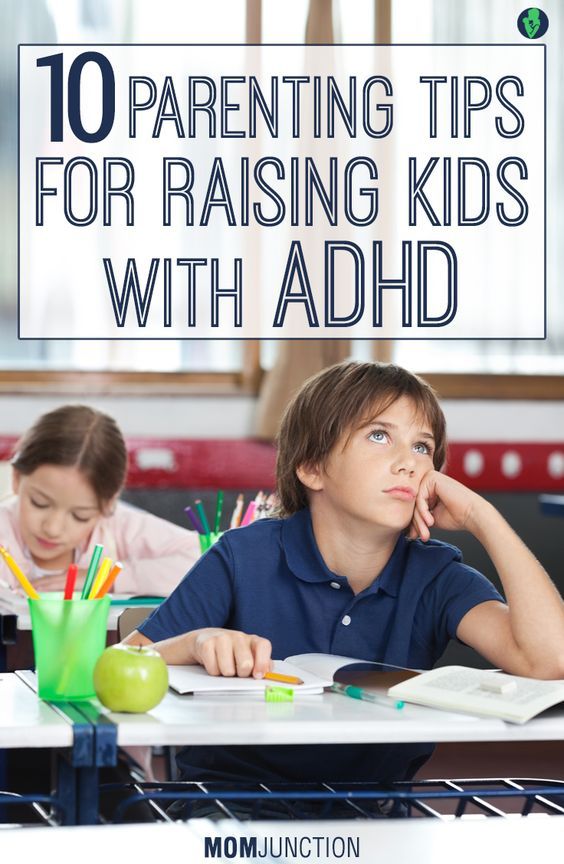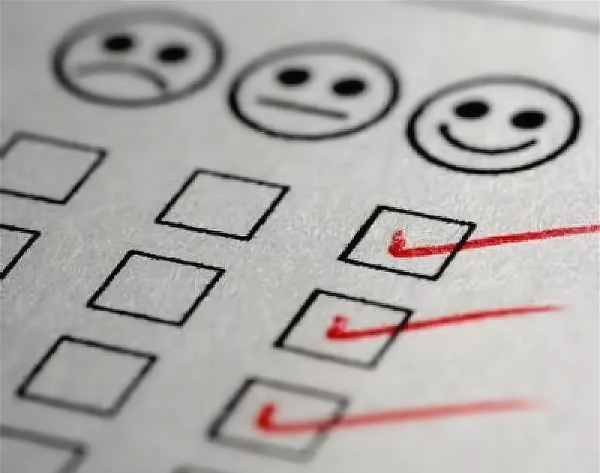Inattentive child parenting strategies
Managing Inattentive ADHD with Psychosocial Treatments
INATTENTIVE ADHD is the most common form of ADHD. It is less well recognized than other forms of ADHD, however, because overactivity and disruptive behaviors are usually not a concern. Instead, regulating attention and executive dysfunction (difficulty planning and organizing goal-directed behavior) are the primary reasons children with this form of ADHD struggle at school and at home. Treatment professionals and researchers refer to it as ADHD-Predominantly Inattentive Presentation or ADHD-I.
At school, children with ADHD-I usually have difficulty completing their work. They often have trouble keeping track of assignments and belongings and they work slowly with drifting attention. They may appear to lack internal motivation and may underperform relative to their academic ability. At home, children with ADHD-I often have difficulty independently and efficiently completing routine activities like getting ready in the morning and completing chores.
Homework is often challenging due to slowness and confusion about assignments. Socially, they may be somewhat passive and withdrawn. Some may not always know what to say or do during social interactions.
Extensive research supports the use of psychosocial (nonmedical, behaviorally oriented) treatments for ADHD. However, this research has been conducted almost exclusively with youth having hyperactivity/impulsivity along with inattention. In response to this gap, we developed the Child Life and Attention Skills (CLAS) program specifically for ADHD-I.
CLAS includes integrated, parent, child, and teacher components. Parents and children attend eight ninety-minute concurrent group sessions (one for the parents and one for the children) and four individual family sessions. Up to five meetings are held between the teacher, parent, and child. The components work together to target common goals across home and school using a supportive reward-based programs, skills training, and organizational structures.
Parent component
The CLAS approach is similar to the approaches used in a number of parent training programs but adapted to more fully address concerns including homework routines, independence, compliance with parent requests, organizational and time-management skills, and peer interactions. Parenting strategies covered include:
● giving quality attention
● using effective "labeled" praise and other positive consequences (desired activities and privileges, for example)
● developing clearly laid-out routines for the morning, homework time, and bedtime
● giving brief and specific directions
● using prudent negative consequences when needed
● using a variety of tools to promote attention and adaptive functioning (such as to-do lists and plans, organized homework areas, and structured playdates)
● parent stress management.
To maximize motivation and buy-in, children help to design their own routines and choose their rewards. At first, parents closely monitor the child's behavior using strategic reminders and positive feedback to reinforce success. Independence is gradually developed, for example, by increasing time between parent check-ins and by using labeled praise, such as "I really like how you started your homework with only one reminder!"
Independence is gradually developed, for example, by increasing time between parent check-ins and by using labeled praise, such as "I really like how you started your homework with only one reminder!"
An individualized plan is designed for each child and includes specific positive behaviors ("bring your planner home" instead of "don't lose your planner"), a system for monitoring progress (often a visual chart), and tokens or points for meeting goals which are exchanged for rewards. Parents are also taught strategies for checking and reinforcing a daily report card and methods to promote and reinforce social skills taught during the child group. For example, parents are encouraged to prompt their child to use friendship-making skills (such as friendly words with good eye contact) when joining a group or asking a child to play. Parents also learn to facilitate successful playdates.
Child component
The child program targets independence at school and home (in homework and study skills, organization and time management skills, and self-care skills such as getting ready for school), and social competence (being a good sport, assertion, dealing with teasing, friendship-making skills, playdate skills).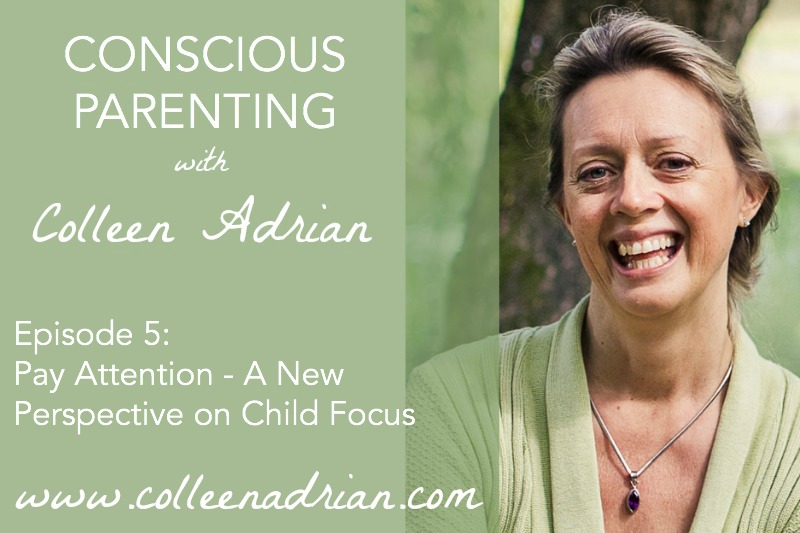 Children practice these skills during group sessions via role-plays of common problem scenarios (such as joining a game or being teased, staying on-task during homework) and during activities and relay races with high doses of positive feedback (such as backpack organization challenges).
Children practice these skills during group sessions via role-plays of common problem scenarios (such as joining a game or being teased, staying on-task during homework) and during activities and relay races with high doses of positive feedback (such as backpack organization challenges).
Self-management of alertness is supported by "attention checks," during which time children are prompted to repeat back what's been said. Each week, children bring in points earned at home and school in exchange for group-based rewards (cheers from group members, for example, or a pizza party). Parents and children meet together at the end of each group to go over the "skill of the week" and plan home activities (such as developing a morning routine checklist or planning a playdate) to practice new skills.
Teacher component
Teachers are taught strategies to support success in the classroom, with a focus on using an individualized report card that goes home with the child each day. Teachers rate students three times a day on up to four target behaviors. Target behaviors are based on the needs of the child and typically include academic work ("get started right away," "finish work on time," or "turn in your homework") and social interactions ("play with a peer at recess," "stay calm when frustrated").
Target behaviors are based on the needs of the child and typically include academic work ("get started right away," "finish work on time," or "turn in your homework") and social interactions ("play with a peer at recess," "stay calm when frustrated").
Rewards are provided at home when the child meets daily and weekly goals. Skills taught in the child group are shared with teachers so that the child's use of these skills can be reinforced at school. Additional accommodations (such as preferential seating, teacher monitoring of a planner to track homework) also may be implemented to improve classroom functioning.
What the research shows
Two studies with over 260 children show that CLAS, compared to usual care, improves inattention symptoms, increases organizational and social skills, reduces daily parenting stress, and increases positive parenting. Over half the participants improved such that their behavior was similar to most typical children. Parents, teachers, and children were very satisfied with the program. Including all components (parent, teacher, child) resulted in the greatest benefit at home and at school. However, we also found that the parent component alone was similarly helpful for improving child behavior at home.
Including all components (parent, teacher, child) resulted in the greatest benefit at home and at school. However, we also found that the parent component alone was similarly helpful for improving child behavior at home.
Two findings are also important to note:
● The more consistently the parents implemented the recommended strategies, the greater the improvement observed in the child.
● The amount of child behavioral improvement was predicted by the degree to which the parent reduced their inconsistent discipline and increased their positive parenting.
We also note a couple of caveats:
● Findings are based on reports from parents and teachers who may have been biased by their participation in the program, and
● Ongoing treatments are likely needed to sustain positive outcomes into subsequent school years.
Nevertheless, these results show that psychosocial treatments can lead to considerable improvement in children with ADHD-I. They also demonstrate the necessary role of parenting in creating these positive outcomes. Coordinating treatment among parents, teachers, and children through common behavioral strategies appears well indicated for children with ADHD-I.
Coordinating treatment among parents, teachers, and children through common behavioral strategies appears well indicated for children with ADHD-I.
Linda Pfiffner, PhD, is a professor in residence, licensed clinical psychologist and director of the Hyperactivity, Attention, and Learning Problems Program in the department of psychiatry at the University of California, San Francisco. She is a former member of the CHADD professional advisory board and a recipient of the CHADD Hall of Fame Award. Elizabeth Owens, PhD, is a licensed psychologist and an assistant professor of clinical psychology at the University of California, Berkeley.
ADDITIONAL READING
Pfiffner, L. J., Hinshaw, S. P., Owens, E. B., Zalecki, C., Kaiser, N., Villodas, M., & McBurnett, K, (2014). A two-site randomized clinical trial of integrated psychosocial treatment for ADHD-inattentive type. Journal of Consulting and Clinical Psychology, 82, 1115-1127.
Pfiffner, L. J., Mikami, A. Y., Huang-Pollock, C. , Easterlin, B., Zalecki, C., & McBurnett, K. (2007). A randomized controlled trial of integrated home–school behavioral treatment for ADHD, predominantly inattentive type. Journal of the American Academy of Child & Adolescent Psychiatry, 46, 1041–1050.
, Easterlin, B., Zalecki, C., & McBurnett, K. (2007). A randomized controlled trial of integrated home–school behavioral treatment for ADHD, predominantly inattentive type. Journal of the American Academy of Child & Adolescent Psychiatry, 46, 1041–1050.
Pfiffner, L.J. (2011). All About ADHD: The Complete Practical Guide for Classroom Teachers, 2nd edition. Scholastic, Inc. New York, NY.
Parenting a Child With ADHD (for Parents)
How ADHD Affects Kids
ADHD causes kids to be more inattentive, hyperactive, and impulsive than is normal for their age. ADHD makes it harder for kids to develop the skills that control attention, behavior, emotions, and activity. As a result, they often act in ways that are hard for parents manage.
For example, because they are inattentive, kids with ADHD may:
- seem distracted
- seem not to listen
- have trouble paying attention
- not follow directions well
- need many reminders to do things
- show poor effort in schoolwork
- have trouble getting organized
Because they are hyperactive, kids with ADHD may:
- climb, jump, or roughhouse when it's time to play quietly
- fidget and seem unable to sit still
- rush instead of take their time
- make careless mistakes
- be on the go (constantly in motion)
Because they are impulsive, kids with ADHD may:
- interrupt a lot
- blurt out
- do things without thinking
- do things they shouldn't, even though they know better
- have trouble waiting, taking turns, or sharing
- have emotional outbursts, lose their temper, or lack self-control
At first, parents might not realize that these behaviors are part of ADHD. It may seem like a child is just misbehaving. ADHD can leave parents feeling stressed, frustrated, or disrespected.
It may seem like a child is just misbehaving. ADHD can leave parents feeling stressed, frustrated, or disrespected.
Parents may feel embarrassed about what others think of their child's behavior. They may wonder if they did something to cause it. But for kids with ADHD, the skills that control attention, behavior, and activity don't come naturally.
When parents learn about ADHD and which parenting approaches work best, they can help kids improve and do well.
How Parents Can Help?
Parenting is as important as any other part of ADHD treatment. The way parents respond can make ADHD better — or worse.
If your child has been diagnosed with ADHD:
Be involved. Learn all you can about ADHD. Follow the treatment your child's health care provider recommends. Go to all recommended therapy visits. If your child takes ADHD medicines, give them at the recommended time. Don't change the dose without checking with your doctor. Keep your child's medicines in a safe place where others can't get to them.
Know how ADHD affects your child. Every child is different. Identify the problems your child has because of ADHD. Some kids need to get better at paying attention and listening. Others need to get better at slowing down. Ask your child's therapist for tips and ways you can help your child practice and improve.
Focus on teaching your child one thing at a time. Don't try to work on everything at once. Start small. Pick one thing to focus on. Praise your child's effort.
Work with your child's school. Talk with your child's teacher to find out if your child should have an IEP or 504 plan. Meet often with teachers to find out how your child is doing. Work with the teacher to help your child do well.
Connect with others for support and awareness. Join a support organization for ADHD like CHADD to get updates on treatment and info, etc.
Find out if you have ADHD. ADHD often runs in families. Parents (or other relatives) of kids with ADHD might not know they have it too. When parents with ADHD get diagnosed and treated, it helps them be at their best as parents.
Parents (or other relatives) of kids with ADHD might not know they have it too. When parents with ADHD get diagnosed and treated, it helps them be at their best as parents.
Discipline with purpose and warmth. Learn what discipline approaches are best for a child with ADHD and which can make ADHD worse. Get coaching from your child's therapist on ways to respond to your child's behaviors. Kids with ADHD might be sensitive to criticism. Correcting their behavior is best done in a way that's encouraging and supportive rather than punishing.
Set clear expectations. Before you go somewhere, talk with your child to explain how you want them to behave. Focus more energy on teaching your child what to do, rather than reacting to what not to do.
Talk about it. Don't shy away from talking with your child about ADHD. Help kids understand that having ADHD is not their fault, and that they can learn ways to improve the problems it causes.
Spend special time together every day. Make time to talk and enjoy relaxing, fun activities with your child — even if it's just for a few minutes. Give your child your full attention. Compliment positive behaviors. Don't over-praise, but do comment when your child does something good. For example, when your child waits their turn, say, "You're taking turns so nicely."
Your relationship with your child matters most. Kids with ADHD often feel they're letting others down, doing things wrong, or not being "good." Protect your child's self-esteem by being patient, understanding, and accepting. Let your child know you believe in them and see all the good things about them. Build resilience by keeping your relationship with your child positive and loving.
Reviewed by: Shirin Hasan, MD
Date reviewed: May 2022
Strategy and tactics of responsibility education
We continue the conversation started in the first article about responsibility. What do parents need and do not need to do in order to raise a serious and conscious personality in a child?
What do parents need and do not need to do in order to raise a serious and conscious personality in a child?
Areas of responsibility
First you need to determine what important areas of responsibility are in the life of a preschooler. Perhaps, in different periods, different areas of responsibility will dominate your educational position, but one way or another, preschool age is the time when the "seeds" of each of them must be "planted".
Responsibility for personal health, safety and life . This is one of the basic areas of responsibility begins to develop around 2.5-3 years, when the child realizes that certain of his actions are dangerous for him. Parents restrict some areas quite severely: electricity, hot objects, high altitude are prohibited. But in some areas they are already appealing to the child's sense of responsibility: “Now you need to take this medicine. It is necessary for you to recover. Do you want to get well?" This develops the child's consciousness, helps him trace the cause-and-effect relationship between his decision and the consequences.
Responsibility for actions , related to the well-being of loved ones and other people . Remember: “Mom is sleeping, she is tired, well, I didn’t play either ...”? This poem is about how a girl deliberately chose this behavior so as not to interfere with her tired mother. This is responsible behavior towards loved ones. It creates a future basis for building relationships with a variety of people, ranging from the most familiar to complete strangers. Of course, it is sometimes difficult for a little man to limit his activity, to take into account the interests of loved ones. But, for example, the difference between a mischievous three-year-old and a "serious" first grader in this aspect is obvious.
Pet responsibility . If an animal lives in your house, then the child should have duties (albeit small, but daily) to care for him. Even children of 3 years old can have their own responsibilities (for example, help their mother wash the feeder). At the same time, you should not place too many responsibilities on the child. A child of this age is easily distracted, has little idea of the concept of time, so it is better not to assign the responsibility for feeding the animal to him.
At the same time, you should not place too many responsibilities on the child. A child of this age is easily distracted, has little idea of the concept of time, so it is better not to assign the responsibility for feeding the animal to him.
TEACHING YOUR CHILD TO CARE FOR A PET
Responsibility for your own things . The older the child becomes, the greater his responsibility associated with the safety of his things: clothes, toys, furniture in his own room. As for toys, the baby begins to understand his responsibility for their condition at about 3 years old. Before that, he can throw a toy in anger if something doesn’t work out for him. From the age of about 3 years, it is important to teach the child to be responsible for keeping his things in order. Of course, the stage of conscious cleaning will not come soon, closer to school age, and maybe later. But parents can get creative and organize cleaning and play at the same time.
Responsibility for given word and decision . In general, this is a broad concept, and it can be applied to any of the items. And parents usually turn their attention to the importance of the child "keeping his word." "You promised to put the toys away, keep your word!" - such phrases often come from the lips of parents. They are in many ways necessary for the child to understand that he is responsible for the words he says and the promises he makes.
Responsibility for one's own successes, and especially failures . It is necessary to draw the attention of the child to the importance of his personal efforts to achieve something. This begins even at the age of 1.5-2 years, when the child learns to eat on his own, and then to dress. Attentive parents encourage the success of the child, but do not rush to help him when something does not work out. And in the future, when the baby learns the world of a variety of things and toys, it is better not to overdo it with help. You can help with advice, suggest something, but doing it for the child means blocking his own responsibility for the process.
You can help with advice, suggest something, but doing it for the child means blocking his own responsibility for the process.
Environmental responsibility . Unfortunately, parents are increasingly forgetting about this kind of responsibility. How bad it is when a child throws a chocolate wrapper on the ground or pulls on tree branches, and an adult walking nearby does not react in any way to this! Be sure to pay attention to how careful the child is on the street, indicate the importance of caring for nature.
Parenting strategy
Karina, Lida and Masha are mothers of 5-year-old children, they often meet at the playground. They are concerned with the upbringing of children. Karina argues that children should be given freedom, but freedom without restrictions is permissiveness. Lida says that a child should grow up freely, almost without restrictions, in order to grow up as a creative person. Well, Masha firmly defends her line of education: the child is still small to know what is good and what is bad, and everything should be decided by the parents. Who is right?
Who is right?
BEST QUOTES OF MODERN PSYCHOLOGISTS
The formation of responsibility begins with the style of parenting: authoritative, permissive or authoritarian.
- The authoritative parent combines a high degree of control with the acceptance and support of children's growing independence; there are clear rules of conduct, and the parent discusses them with the child. Such parents raise the most responsible children.
- Permissive-style parents hardly restrict their children's behavior, and when they try to restrict, they do it so hesitantly that the child does not obey. The family maintains a kind, cordial atmosphere. But such children have difficulty in situations where you need to restrain your impulses or put off pleasure for the sake of business.
- The authoritarian style of parental behavior consists in strict control over the behavior of children who are excluded from the decision-making process.
 This parenting style leads to the suppression of initiative and the desire to make their own decisions out of fear of punishment. And, in the end, either a grown child begins to rebel and acquires independence, breaking all ties with his parents, or remains an irresponsible performer for life.
This parenting style leads to the suppression of initiative and the desire to make their own decisions out of fear of punishment. And, in the end, either a grown child begins to rebel and acquires independence, breaking all ties with his parents, or remains an irresponsible performer for life.
The "golden mean" is, of course, the authoritative style of education, because it balances the necessary control over the child's behavior and providing him with reasonable independence.
Bricks of responsibility
Assignment of feasible tasks . Think and clearly define first for yourself what responsibilities your child can do. Make cards showing these responsibilities. You can draw them, cut out suitable pictures from a magazine, or simply take a picture of your child performing a certain duty. For example, the obligation to clean up toys can be depicted as a toy box. The obligation to water the flowers is like a watering can next to a pot of flowers. For each case - a card. There can be as many cards as you consider feasible for your baby.
For each case - a card. There can be as many cards as you consider feasible for your baby.
Reminder and control . Toddlers are very distractible creatures, and while watching a cartoon or playing an interesting game, they may well forget about their duties. To remind them not necessarily in words, because constant reminders exhaust both parents and children, you made cards. Attach them to a magnetic board or refrigerator in the amount that they should be performed today. Let there be no more than 1-2 “big” cases per day for a three-year-old kid and no more than 4-5 for a six-year-old. The next day, some of the tasks (the main thing is not all at once) can be replaced with another, so more cards are needed. If you understand that the child has forgotten about an important task, just bring him to the cards and ask if he did everything?
Incentives and sanctions . This is an extremely important point, without which the whole system loses its meaning.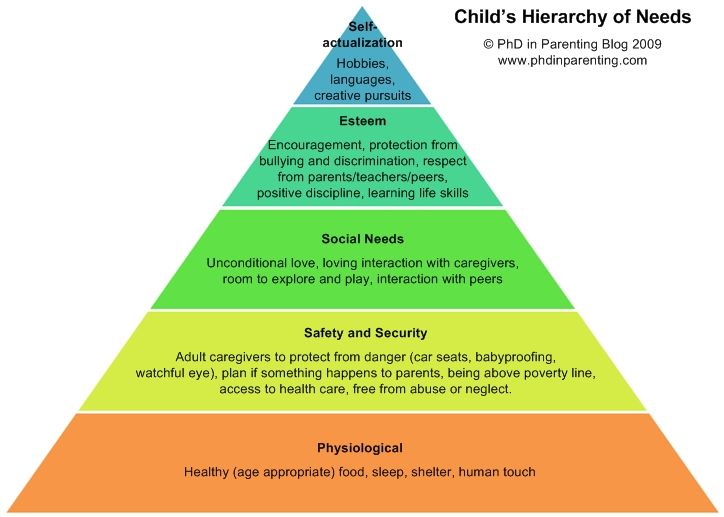 Agree with the kid that each completed task will be marked on the card with the appearance of a magnet, for example, in the form of a funny little animal or a letter. Then it will be easy for him to track what things are done. If by the end of the day not all cases were completed, then sanctions come. Soft option - the baby simply does not receive the expected number of magnets. A more strict option - he receives less magnets by as much as he did not complete the tasks. After a week, he can exchange magnets for some kind of privilege, which should also be known to the child in advance. The clearer the conditions are for the baby, the easier it will be for him and you.
Agree with the kid that each completed task will be marked on the card with the appearance of a magnet, for example, in the form of a funny little animal or a letter. Then it will be easy for him to track what things are done. If by the end of the day not all cases were completed, then sanctions come. Soft option - the baby simply does not receive the expected number of magnets. A more strict option - he receives less magnets by as much as he did not complete the tasks. After a week, he can exchange magnets for some kind of privilege, which should also be known to the child in advance. The clearer the conditions are for the baby, the easier it will be for him and you.
Important! There must be clarity in this system, otherwise it will not bring results. This system is based on the method of positive reinforcement: what leads to good consequences is fixed in the child's behavior, and what leads to unpleasant consequences is eliminated. It will take at least 7-10 days to see the first results.
Responsibility education tactics
- I will be like a mother! The basis of children's responsibility is the responsible behavior of his loved ones. The life position of responsible people is visible in every little thing, and the child absorbs it naturally, without effort. Such parents always keep the promises made to their children. The kid sees how responsibly his mother treats work or household duties and in games copies exactly this behavior, making it the basis of her own character.
- Incentives and sanctions. This method is based on the theory of positive reinforcement: what is positive is reinforced in behavior, and what is negative is avoided. Suppose you decide that the child should put his clothes in the closet himself, and not throw them on a chair. For some children, the emotional reaction of their parents is enough, for them a smile is a reward, and knitted eyebrows are a punishment. Such children subtly feel the state of their parents and rely on it in their behavior.
 But not all children are capable of this. Therefore, other methods of encouragement and sanctions can be applied. For example, give out the aforementioned colored magnets every time the child himself remembered his duties. And in case he forgets, you can agree that he will sing "A grasshopper was sitting in the grass." The game becomes more interesting if the child also follows your behavior: if you threw clothes on a chair, he may also demand the execution of the Grasshopper. In this case, the sanctions are perceived as more fair, because the rules are the same for everyone.
But not all children are capable of this. Therefore, other methods of encouragement and sanctions can be applied. For example, give out the aforementioned colored magnets every time the child himself remembered his duties. And in case he forgets, you can agree that he will sing "A grasshopper was sitting in the grass." The game becomes more interesting if the child also follows your behavior: if you threw clothes on a chair, he may also demand the execution of the Grasshopper. In this case, the sanctions are perceived as more fair, because the rules are the same for everyone.
THE JEWEL OF THE OLDER FOR THE YOUNGER: HOW TO INCULATE LOVE
- There is also the concept of so-called "natural sanctions". For example, the child forgot to put the shoes to dry, and by the evening walk the boots were wet. In this case, these most natural sanctions come for the baby: he has nothing to go for a walk. But it is important at the same time that we are talking about duties from the agreed and well-known to both parties "area of responsibility" of the child.
 If the mother usually puts the boots to dry, but then she forgot and decided to shift her responsibility to the baby, then these are not “natural sanctions”, but behavior that brings confusion to the upbringing of responsibility. The child should accept consequences only for what he is really responsible for.
If the mother usually puts the boots to dry, but then she forgot and decided to shift her responsibility to the baby, then these are not “natural sanctions”, but behavior that brings confusion to the upbringing of responsibility. The child should accept consequences only for what he is really responsible for. - Like in a fairy tale. Another method close to children's perception is reading and discussing literary works. Remarkable works on this topic, for example, "Dunno" by N. Nosov and the poem cycle "Younger Brother" by A. Barto. In almost any book or cartoon, you can find the theme of responsibility in the behavior of characters. Pay attention to these episodes, discuss with the child.
- Learning by playing! Play for preschoolers is a leading activity. The most effective way to put something useful into a child's head is to play with it. For example, nightly cleaning can also be turned into a game process: put the cars in the garage and put the dolls to sleep.
It is important to remember that the baby's personality is only being formed, and one should not expect full responsibility from him, and it is not necessary, because responsibility is a big burden even for an adult personality, and the child is not yet ready for it. It is necessary to delicately and patiently lay the foundations of responsibility, which are sure to develop at a later age. And, of course, the main thing for a child is to see an example of a close adult: responsible, independent, moderately demanding, but ready to provide the necessary independence.
It is necessary to delicately and patiently lay the foundations of responsibility, which are sure to develop at a later age. And, of course, the main thing for a child is to see an example of a close adult: responsible, independent, moderately demanding, but ready to provide the necessary independence.
Interesting topics:
Getting ready for school
A son is the best present
Grazhyna Budinaite — Modern parenting strategies through the eyes of a family psychotherapist — Otechestvennye zapiski
residents of the metropolitan metropolis in their families. It is rather a "practical typology" of these strategies, built on the basis of the live impressions of a family therapist. The classification proposed by us is rather conditional and generalized. Each of the strategies singled out here has a rational component, and for the most part these methods are presented in one way or another in the “normal” educational process; however, of course, they can be combined. However, it was important for us to show what happens when any educational principle becomes total.
However, it was important for us to show what happens when any educational principle becomes total.
When constructing such a typology, first of all, the question arises of the connection between modern methods of education and "types of parenthood" with the current socio-cultural situation, with the changes that it is undergoing. Pointing to such a connection, the psychologist, as a rule, asks the question: why is this or that educational trend, albeit thrice conditioned by the state of society, realized in this particular family? Why is the family most receptive to her?
The professional view of a psychologist allows us to see here the result not so much of a conscious choice (whatever rational and ideological grounds parents find for such a choice), but of hidden compensation - automatically implemented ways to overcome the difficulties that are characteristic of the established system of family interaction, the impact of transformed patterns of behavior, which were once assimilated by today's parents in their own families. We considered it necessary to show precisely this “psychological background” of existing educational strategies.
We considered it necessary to show precisely this “psychological background” of existing educational strategies.
Strategy 1: “Give it to the professionals”
How it is expressed
management". Another option is also possible: a financially secure family, for which following this strategy is a way of confirming its material and social status. In fact, the entire content of the life of a child from such a family is considered as the sum of paid services received by parents "from outside". The psychologist whom such parents turn to is another professional in a number of paid assistants; he must provide an additional service or eliminate some of the “roughness” of the work of other professionals. The rationale for this position is quite rational ideas about the civilized distribution of labor (why, in fact, do not entrust specialists, and not us amateurs, with both education, and nursing, and finding a common language with “him”, which is not yet completely clear to us).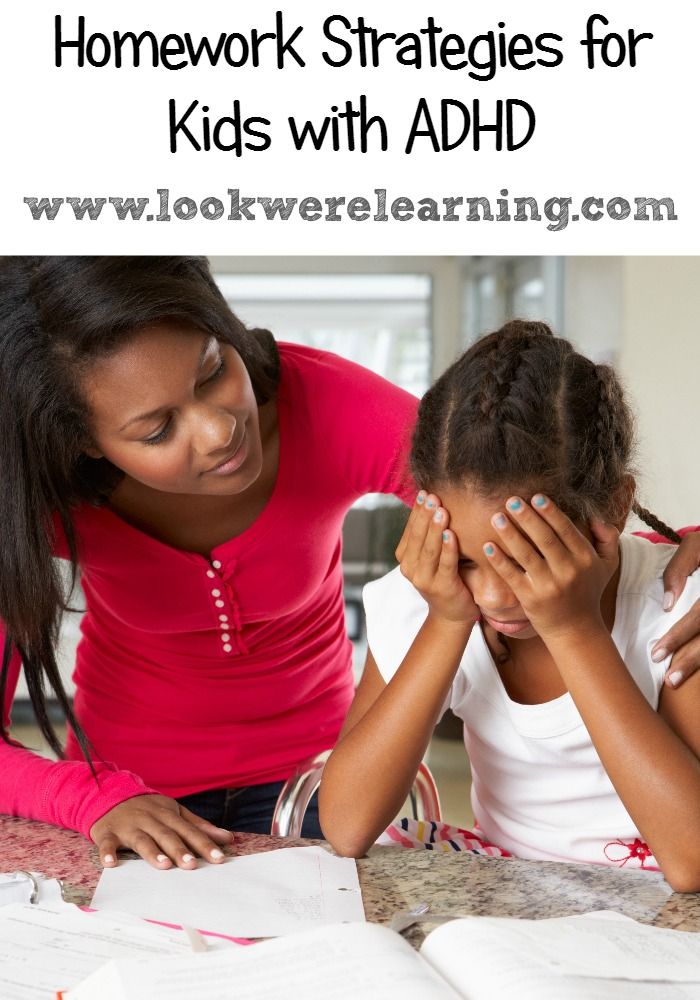
Of course, these parents are easy prey for all commercial and non-commercial (however, often even more commercialized) institutions of our social system. Any savvy specialist who is ready to realize the mindset “you’ll somehow get here without us, and we’ll pay for everything” can receive a source of permanent income in their person. Such parents often come to see a psychotherapist accompanied by nannies “who know everything better,” and if the child has reached school age, then when asked about his characteristics, parents can answer that it is better to contact a psychologist at a private school where he studies.
What causes it
There is a great temptation to explain this strategy as "new trends". Indeed, with the change in living conditions, primarily in large cities, the opportunities to “mediate” interaction with the child have expanded enormously, especially in comparison with the time when the current generation of parents were children.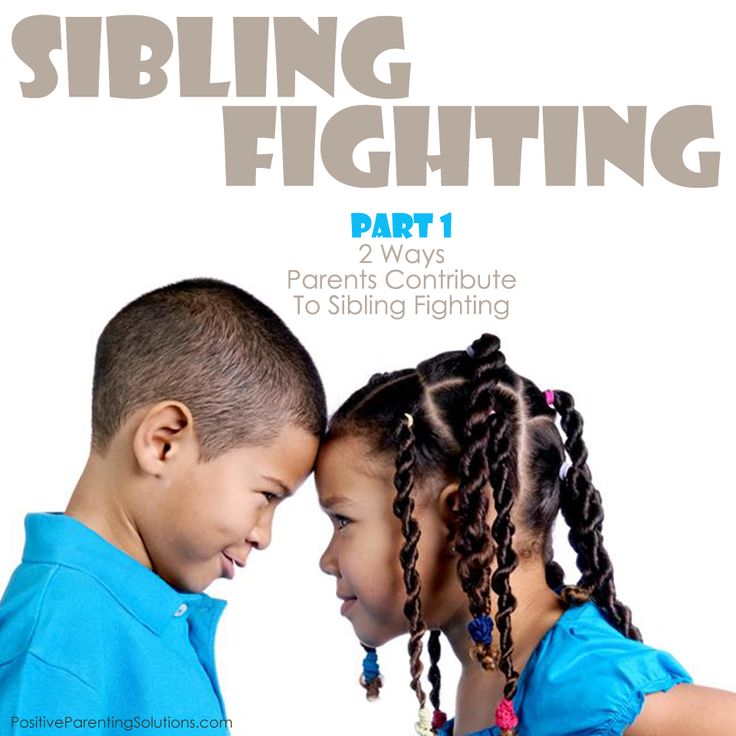 On the other hand, tough “market” conditions that require young parents to spend a lot of time and energy on the performance of professional duties are pushing them to look for other forms of parental duties, and this pressure has recently been increasing, since in such a professional situation everyone often both parents.
On the other hand, tough “market” conditions that require young parents to spend a lot of time and energy on the performance of professional duties are pushing them to look for other forms of parental duties, and this pressure has recently been increasing, since in such a professional situation everyone often both parents.
Nevertheless, it can be argued that there is nothing essentially new in this strategy. For a long time, it has been quite consistently used by both the low-income (who are forced to resort to social support in raising children) and the most prosperous sections of society, although it is obvious that the nature of its implementation varies greatly. It is also impossible not to notice that in a certain sense it continues the logic of Soviet upbringing, which was fundamentally “anti-family” and strove for the maximum social mediation of intra-family relations.
How dangerous it is
Considering how hostile our attitude towards any professional assistance to the family is still widespread, then the desire of parents to receive professional pedagogical, psychological and just everyday support in many cases should only be welcomed.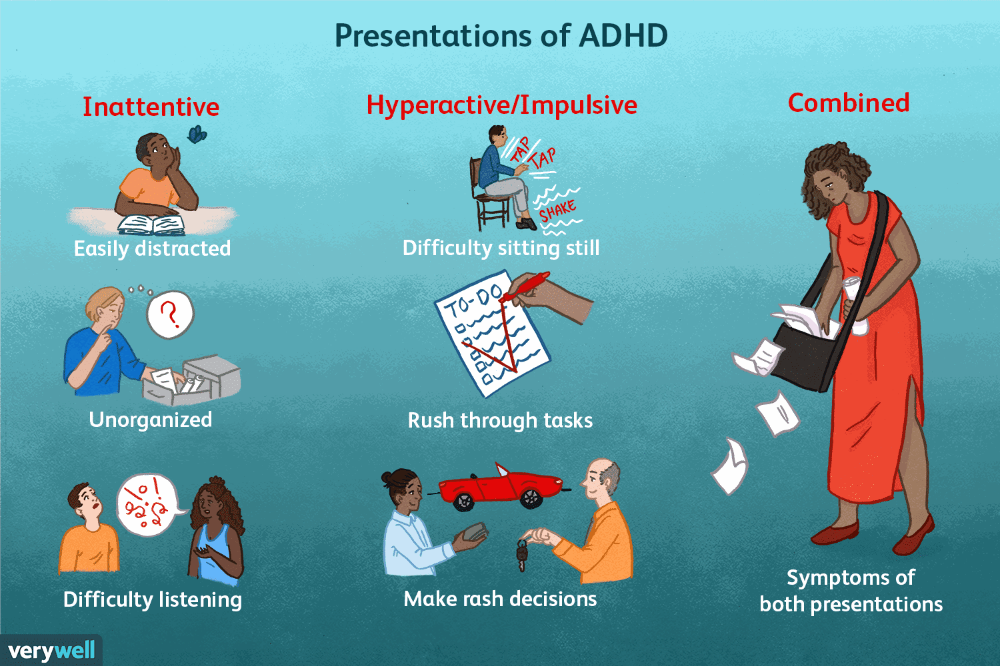 However, with the total predominance of this method of solving educational problems, the immediacy of relations in the family suffers damage: personal contact, emotional connection between parents and children fades away, in other words, the basis of normal mutual understanding and control of the child in early and even more so adolescence is lost. The trouble is that parents often seek to compensate for the lack of this immediacy ... by the accumulation of mediating factors. The child is bored, bored - apparently, the nanny was not very cheerful, we will send him to the kids club; the child does not play, more and more often he sits in the corner - let's buy him even more toys.
However, with the total predominance of this method of solving educational problems, the immediacy of relations in the family suffers damage: personal contact, emotional connection between parents and children fades away, in other words, the basis of normal mutual understanding and control of the child in early and even more so adolescence is lost. The trouble is that parents often seek to compensate for the lack of this immediacy ... by the accumulation of mediating factors. The child is bored, bored - apparently, the nanny was not very cheerful, we will send him to the kids club; the child does not play, more and more often he sits in the corner - let's buy him even more toys.
Money becomes a particular factor that creates a vicious circle of "increasing mediation". Often it is money that is a conscious or unconscious substitute and compensator for missing emotional relationships. It is known that many working parents (especially mothers) develop a sense of guilt for insufficiently responsible, "spiritual" performance of their duties. One of the means of overcoming this feeling is a kind of payment to children for "unfinished". It is curious that intra-family problems that arise against this background often take on precisely the “monetary form”. For example, in children's theft one can see the answer to this way of regulating family relations.
One of the means of overcoming this feeling is a kind of payment to children for "unfinished". It is curious that intra-family problems that arise against this background often take on precisely the “monetary form”. For example, in children's theft one can see the answer to this way of regulating family relations.
Possible help from a psychologist
A situation is unacceptable when an outsider who gets involved in the life of the family voluntarily or involuntarily uses its problems, receiving material or psychological benefits. Any specialist invited by parents should first of all cooperate with them based on an understanding of the basic nature of the parent-child relationship. For example, the task of a family psychologist is not to ensure that the family gets another “good parent”, but that, thanks to his help, the emotional contact between parents and the child is strengthened. Indeed, most of the problems that the strategy we are discussing give rise to are explained precisely by the psychological difficulty or even the impossibility for parents of such contact, fear of it, and the desire to avoid it.
Strategy 2: “He must, he simply must”
What it means
A child who is taught to read at two years of age and English at four. A mother crying because her son can't count as fast as other preschoolers and her daughter can't name all the planets in the solar system. An endless race through sections, clubs, tutors, courses: who did not have time, he was late. The life of such families, usually led by the mother, is subject to a strict daily routine and a huge number of plans, sometimes built several years in advance. Any hitch on the way from achievement to achievement can be perceived as a tragedy. A psychologist is usually invited in order to train the child better, to eliminate "unnecessary whims." As a rule, such a family is rigidly oriented towards social approval. Relations within the family are extremely tense: the approval, praise, and joy of parents largely depend on what the child did and did not do. Here they try to exclude the “useless fooling around” familiar to childhood, playing with “simple” neighbor children, “empty daydreaming” - all this causes anxiety and rejection. The child's connection with the parents, or at least with one of the parents, is often more intense than usual, but this sometimes leads to impoverishment and even the exclusion of normal relationships with peers.
The child's connection with the parents, or at least with one of the parents, is often more intense than usual, but this sometimes leads to impoverishment and even the exclusion of normal relationships with peers.
What causes it
This type of child-parent relationship is largely formed and strengthened by the time of perestroika changes. Obviously, a wave of disturbing parental activity was provoked by the entry into the “big world”, from which the then parents were isolated in childhood: this world in their eyes did not so much open up new opportunities as it presented new frightening demands. The method of solving the problems of education generated by this fear is clearly rooted in the era of scarcity, when with incredible efforts it was necessary to get something that is not available anywhere, but “every decent person has”. A corresponding mythology arose: it is impossible not to give birth in the water, it is impossible not to teach dancing and fencing in a private school, it is impossible not to start learning a language, and preferably two, in early childhood.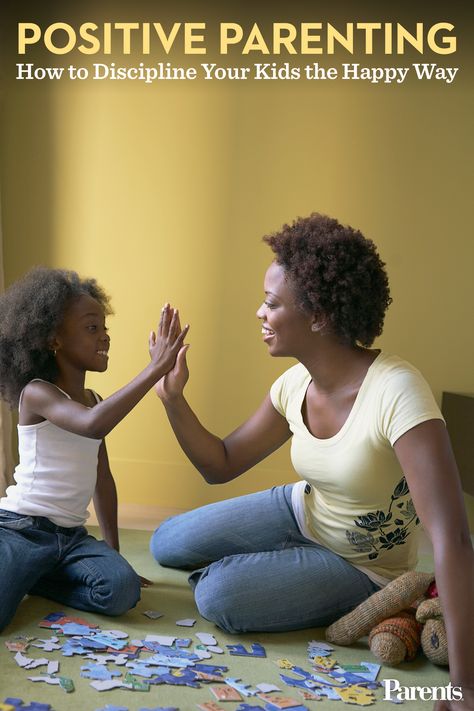 The parents' own anxiety was channeled into increased "care" for the children. It seems that with the stabilization of living conditions, this activity began to subside somewhat and is no longer of such a spontaneous nature. However, competitive conditions of existence largely determine relationships in the family today.
The parents' own anxiety was channeled into increased "care" for the children. It seems that with the stabilization of living conditions, this activity began to subside somewhat and is no longer of such a spontaneous nature. However, competitive conditions of existence largely determine relationships in the family today.
Of course, parents of the "stimulating" type have always been - however, under the previous government, which trumpeted about the "happiest childhood in the world", provided by the very fact of living in a Soviet country, they were rather latent oppositionists who opposed the official upbringing and educational system, leveling personality. However, in both cases it is difficult to distinguish between the efforts aimed at the development of the child and the parents' unconscious desire for their own self-realization.
How dangerous it is
Psychologists often talk about the difference between unconditional and conditional parental love.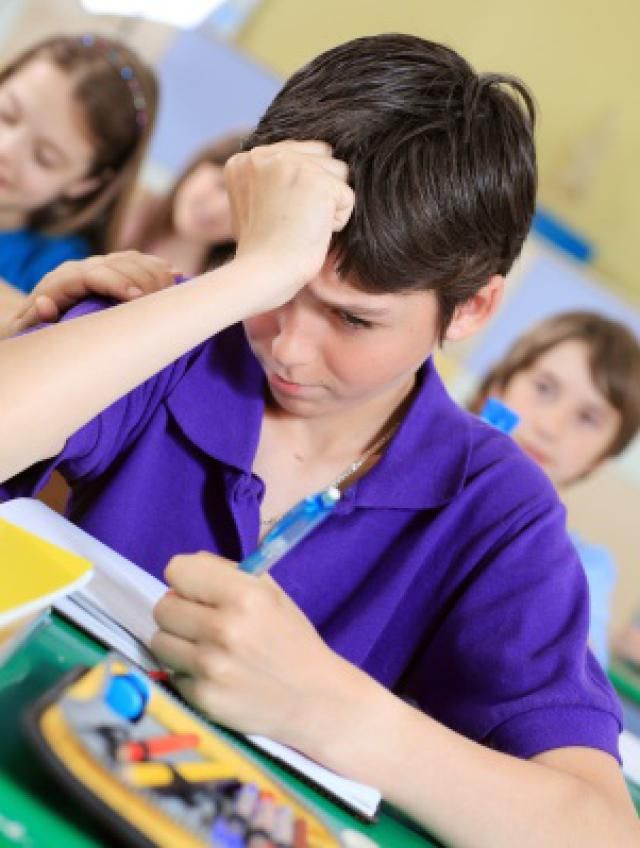 The main parental duty is the unconditional acceptance of the child: one should love him for the simple fact of his existence, "for what he is." In addition, parents should be intermediaries between the child and the big world, prepare the child for life in society. The strategy we are talking about is generated by the hypertrophy of the second function (which in itself is undoubtedly important and useful). This often leads to a paradoxical result: all the achievements accumulated as a result of many years of efforts do nothing to help in the situation of the very first personal crisis, if the parents neglected the basis of “primary” love, if the child has not formed the ability to realistically perceive himself and others, which suffers significantly just in such a relationship. It is extremely difficult for parents to come to terms with the collapse of the hopes placed on their children: not realizing the boundary between their personality and the personality of the child, they perceive his defeat as their own.
The main parental duty is the unconditional acceptance of the child: one should love him for the simple fact of his existence, "for what he is." In addition, parents should be intermediaries between the child and the big world, prepare the child for life in society. The strategy we are talking about is generated by the hypertrophy of the second function (which in itself is undoubtedly important and useful). This often leads to a paradoxical result: all the achievements accumulated as a result of many years of efforts do nothing to help in the situation of the very first personal crisis, if the parents neglected the basis of “primary” love, if the child has not formed the ability to realistically perceive himself and others, which suffers significantly just in such a relationship. It is extremely difficult for parents to come to terms with the collapse of the hopes placed on their children: not realizing the boundary between their personality and the personality of the child, they perceive his defeat as their own.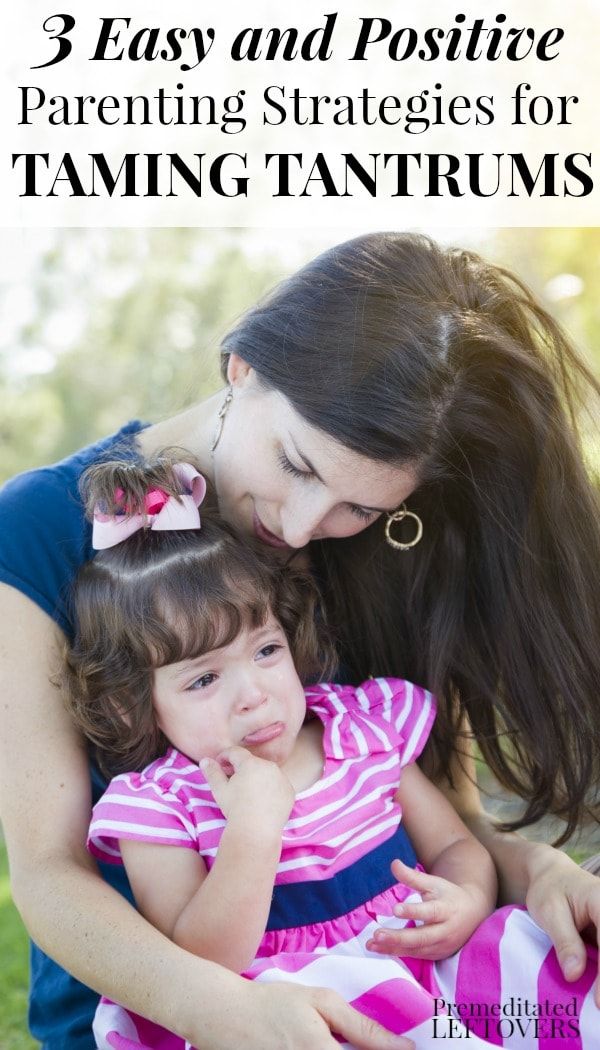
From a psychological point of view, the choice of such a strategy is explained, in addition to real or imaginary "social pressure", by the acutely experienced by parents of their own insufficient self-realization - this shortcoming is intended to be compensated by the child. Sometimes behind such strategies there may be various “structural” family dysfunctions, disruption of normal marital relations. The pursuit of the child's success becomes a means of compensating for this violation: for example, it makes it possible to involve a husband who does not pay attention to his wife in the discussion and joint experience of this "worthy goal".
Possible help from a psychologist
The main task of the consultant is to help distinguish between educational goals that are really determined by the course of life of this particular family, and external goals imposed both by “social pressure” (momentary prestige or fashion trend) and psychological problems the parents themselves.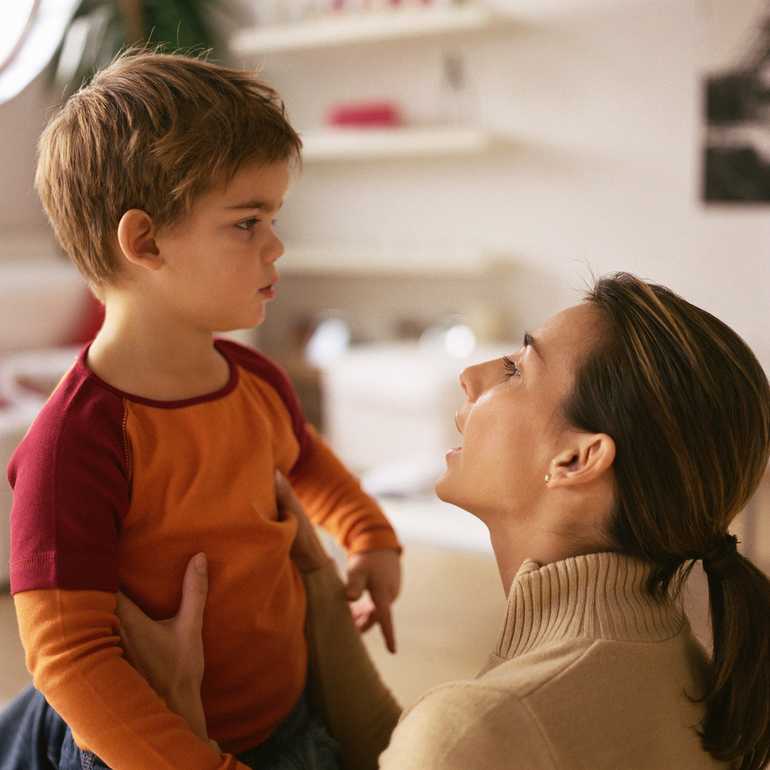 At the therapeutic level, you need to look for ways to overcome the anxiety of parents, discuss ideas, constructs and myths that determine their interaction with children, try to restore emotional contact with the child, the ability to love him as he is, and not as he "should be".
At the therapeutic level, you need to look for ways to overcome the anxiety of parents, discuss ideas, constructs and myths that determine their interaction with children, try to restore emotional contact with the child, the ability to love him as he is, and not as he "should be".
Strategy 3: “Spiritual, only spiritual!”
How it is expressed
Supporters of this strategy consider it necessary to lay in the child's mind a solid foundation of "genuine values and meanings" opposed to the "plague-ridden" world around. The quality of the spiritual food consumed by the child is rather tightly controlled. For example: only Soviet cartoons, only exhibitions and theaters... Reverent attitude to books and reading... Decent poverty (the child asks for jeans for months). Strict patriarchal morality, strong ideas about what is good and what is bad. They are shared - at least at a certain stage - by all members of the family (often, by the way, with many children), they become a kind of intra-family religion.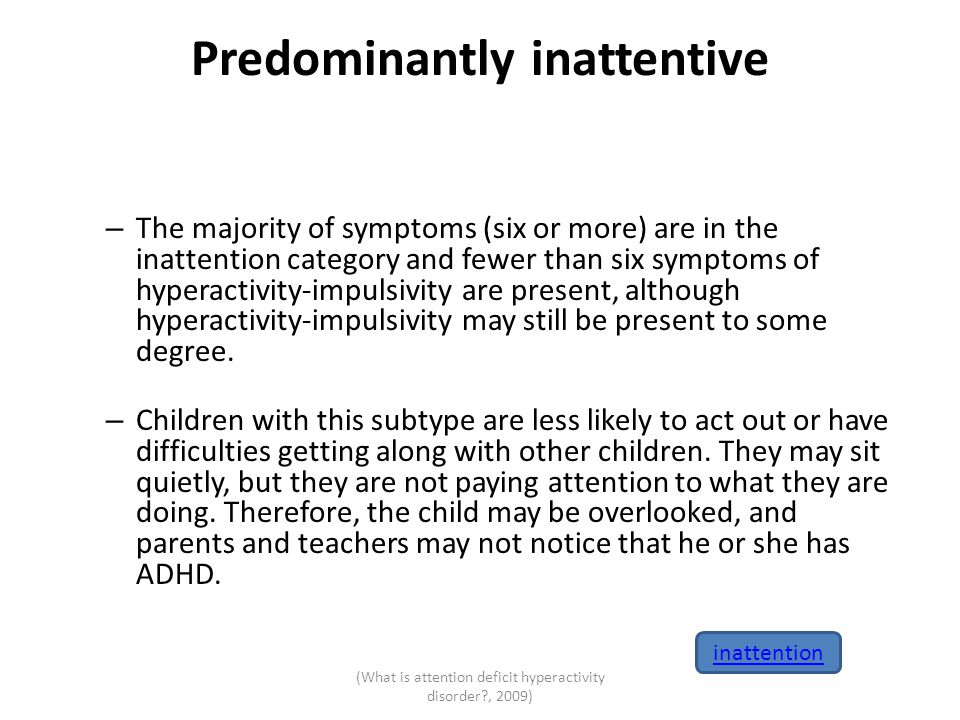 All this creates a special atmosphere that makes it possible to define such a family - as opposed to a "socially oriented" family - as "dissident"[1]. Willingly or involuntarily, the pathos of one's own, “inherent only to us” ideology and opposition to the environment is cultivated here. A psychologist is usually called in as like-minded people, he must help the family fight or survive among the "spiritual world", sanctify its educational ideals and contribute to their implementation.
All this creates a special atmosphere that makes it possible to define such a family - as opposed to a "socially oriented" family - as "dissident"[1]. Willingly or involuntarily, the pathos of one's own, “inherent only to us” ideology and opposition to the environment is cultivated here. A psychologist is usually called in as like-minded people, he must help the family fight or survive among the "spiritual world", sanctify its educational ideals and contribute to their implementation.
What causes it
Of course, this type of family has always existed. In Soviet times, her opposition was dictated by the need to resist the realities of Soviet upbringing, the desire to preserve at least something alive in the child, although often this desire turned into an immersion in an overly saturated intellectual environment, which Merab Mamardashvili once spoke about[2]. Today, this opposition is dictated by opposition to mass culture, its “stupefying influence”, a reaction to the culture shock caused by the production of new media, Western mass culture, etc.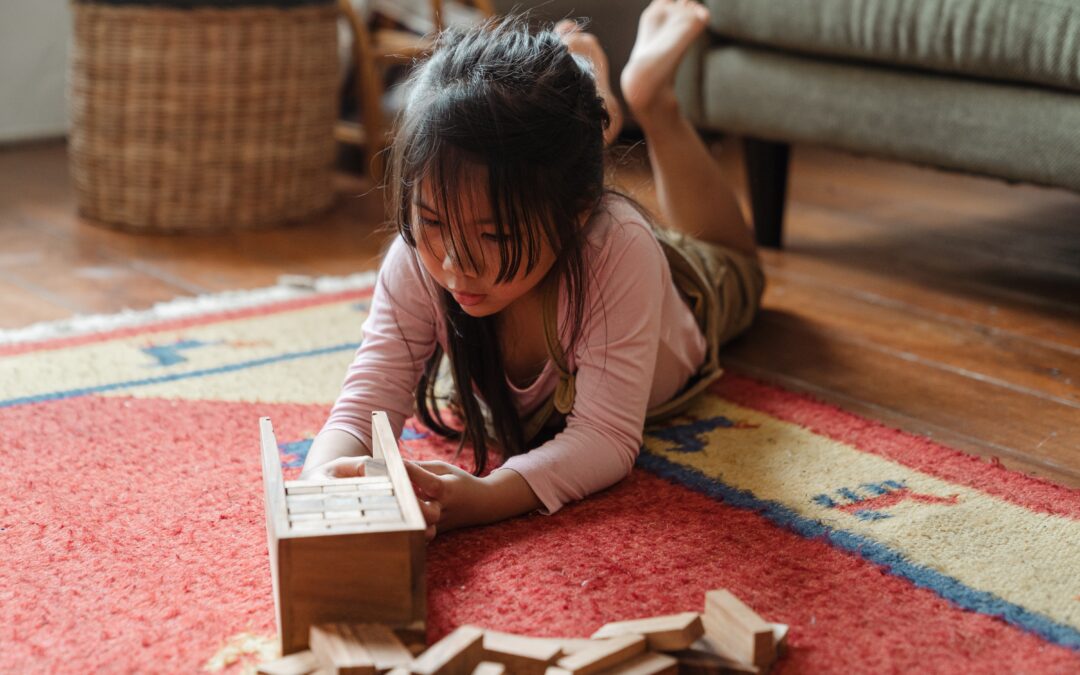 Many parents are saddened by the discrepancy between the educational guidelines of their own childhood and those that came to replace them. . Therefore, behind the choice of this strategy is often an attempt to create at least in the "own fortress" a microclimate that meets the former "eternal" ideals, principles and tastes of the parents. In many respects, the preference for this type of upbringing is also explained by the markedly increased religious influence, which is opposed to "pernicious" tendencies.
Many parents are saddened by the discrepancy between the educational guidelines of their own childhood and those that came to replace them. . Therefore, behind the choice of this strategy is often an attempt to create at least in the "own fortress" a microclimate that meets the former "eternal" ideals, principles and tastes of the parents. In many respects, the preference for this type of upbringing is also explained by the markedly increased religious influence, which is opposed to "pernicious" tendencies.
How dangerous it is
Undoubtedly, the readiness of the family to make efforts for the spiritual development of the child should only be welcomed. Any family psychologist will agree with the fact that the boundaries of the family must be expressed, that the family must have its own world that distinguishes it from the surrounding reality, its own rules, rituals, etc. It is also obvious that such a culturally rich environment is really necessary for the child's creative interests and aspirations. However, the strategy we are talking about can often lead to unexpected, sometimes directly opposite results - an unhealthy passion for forbidden hamburgers, an increased interest in the label on the neighbor's boy's jeans, etc.
However, the strategy we are talking about can often lead to unexpected, sometimes directly opposite results - an unhealthy passion for forbidden hamburgers, an increased interest in the label on the neighbor's boy's jeans, etc.
Problems arise when parents focus on the rigid opposition of the family to the surrounding society. It is known that the termination of normal interchange with the environment leads to disintegration and chaos within any system. The gaps between children and parents, as psychologists know, often become a natural consequence of the existence of a child in the too close, too regulated world of such a family. The normal process of a child's gradual separation from his parents, his growing interest in adolescent communities, in new forms of life not consecrated by the family, is often painfully perceived by parents as a betrayal of family values. Children have to pay dearly for the "trampling" of family religion, losing the favor of their parents.
Possible help from a psychologist
The mission of the family is not only to create the necessary educational environment, but also to help the child gradually prepare for solving his own life tasks that cannot be reduced to existence under the wing of his parents. If all the needs of the child could be realized in the parental family, then he would never be able to move on to building his own family. Parents' awareness of this simple fact is an essential step in overcoming the difficulties generated by such an upbringing strategy[3].
If all the needs of the child could be realized in the parental family, then he would never be able to move on to building his own family. Parents' awareness of this simple fact is an essential step in overcoming the difficulties generated by such an upbringing strategy[3].
However, following this strategy becomes a real therapeutic problem when the parents are not socially adapted, and sometimes there is a fear of reality with its competitive beginning, the need to practically defend one's ideals, etc. In other words, principles and ideals families should not reflect the social autism of parents, their anxiety. It is necessary to improve the interaction of the family with the outside world, to help parents and children move towards its realistic acceptance.
Strategy 4: “Everything is allowed to him”
How it is expressed
Parents are driven by the idea that their child is a self-worthy personality, that the treasures hidden in his soul are mercilessly destroyed by any socialization .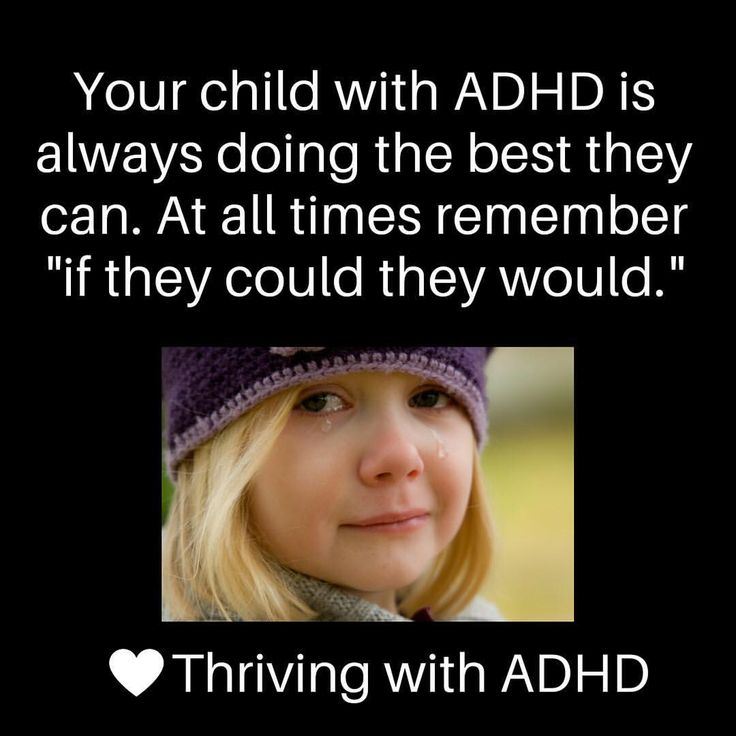 It is as if the parents are entrusted with the mission of preserving the “originality” of their child for the world. For this, they sacrifice not only their own elementary comfort, but often common sense. It is in such a family that one can see a squealing, hysterical baby, whom parents who have brought up the necessary mental fortitude look with tenderness. It is clearly felt to what extent parents are afraid of their child. Their life is extremely difficult: they have to face explicit or implicit social censure, put up with the fact that friends gradually refuse to visit their home, experience constant mental exhaustion and fatigue. It must be admitted that the life of a child is psychologically difficult. It is difficult for him to be in a poorly structured environment, where any of his desires does not meet with resistance. The inability to recognize the limits of his own capabilities gives rise to anxiety in him. I remember a thirteen-year-old girl who tried every means to return her mother to her parental role, but did not achieve this even when she left the boy with her for the night - this act was fully understood by a free-thinking mother.
It is as if the parents are entrusted with the mission of preserving the “originality” of their child for the world. For this, they sacrifice not only their own elementary comfort, but often common sense. It is in such a family that one can see a squealing, hysterical baby, whom parents who have brought up the necessary mental fortitude look with tenderness. It is clearly felt to what extent parents are afraid of their child. Their life is extremely difficult: they have to face explicit or implicit social censure, put up with the fact that friends gradually refuse to visit their home, experience constant mental exhaustion and fatigue. It must be admitted that the life of a child is psychologically difficult. It is difficult for him to be in a poorly structured environment, where any of his desires does not meet with resistance. The inability to recognize the limits of his own capabilities gives rise to anxiety in him. I remember a thirteen-year-old girl who tried every means to return her mother to her parental role, but did not achieve this even when she left the boy with her for the night - this act was fully understood by a free-thinking mother.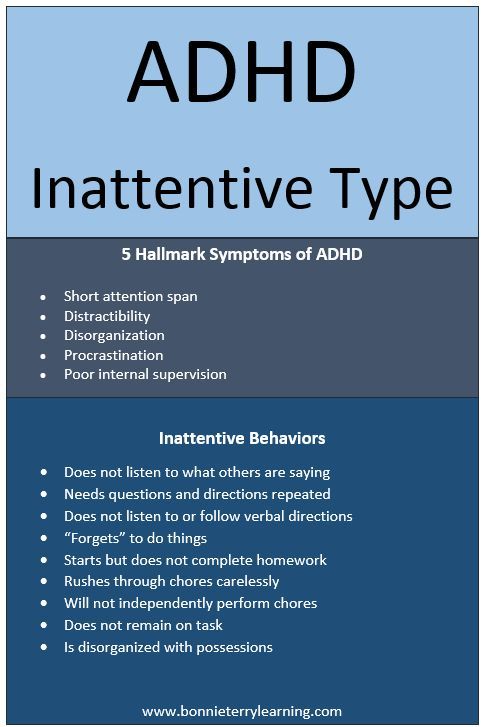
Turning to a psychologist for help, such a family usually warns that "trampling on the freedom" and interests of the child is unacceptable for them.
What causes it
Such a strategy is generated by a reaction to the real or imaginary strict regulation and increased "sociality" of one's own childhood. Often behind it are ideological differences with the "official" tradition of education. At the same time, one can see in it a consequence of later euphoria, a happy realization of the “freedom” that has come, which made it possible to try out new opportunities that did not exist in the childhood of today's parents. Psychologically, this strategy can channel an aggressive attitude towards the world, as if a response to one's own bondage to oppressive circumstances, demands and rules: the child "plays out" for the parents. Generally speaking, this strategy is alien to the patriarchal Russian culture of education. At the same time, it is in good agreement with the traditional Russian "child-centrism".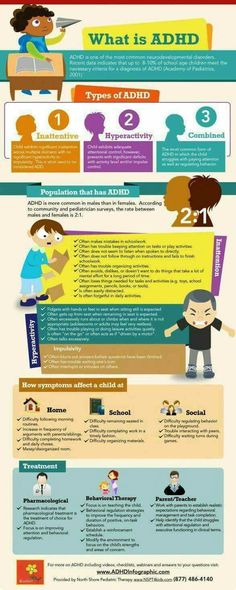
How dangerous it is
In itself, the parents' understanding of the child's need for physical and psychological freedom, spontaneity of actions - the opportunity to get smeared, run from the heart, fantasize freely and express oneself - is wonderful. Freedom is a necessary condition for a happy childhood. However, it is good only to the extent that it remains possible to solve another important task: to prepare the child for his future existence in society and interaction with others, to teach him to adapt, to survive in competitive conditions. An uncontrollable child is more susceptible to various everyday dangers: he does not form a “symmetrical” understanding of the situation (“the other feels it the same way as I do”), he does not know how to fit his intentions and needs into the space of other wills. Hence the aggression and impotence in a collision with others. Parents, endlessly admonishing and enduring, are often forced to suppress natural irritation, which in the end can break through with a real “storm”.
Possible help from a psychologist
Bearing in mind the dual nature of the parental task mentioned above, parents must recognize the objective nature of their rights and, as a consequence, the need for reasonable regulation of the child's behavior. An essential part of the psychologist's work is the discussion of the parents' own problems, their relationships with others. The topics of such discussion can be resentment, hidden hostility, the experience of being squeezed out of social space. The result should be the restoration of a normal family hierarchy, where the parents naturally occupy a higher place than the child. Experience shows that such a family structure is usually perceived by the latter as quite natural and providing comfortable living conditions.
Strategy 5: “The main thing for the child is the mother!”
How it is expressed
This strategy is implemented in families with “new opportunities” no less than in a traditional family.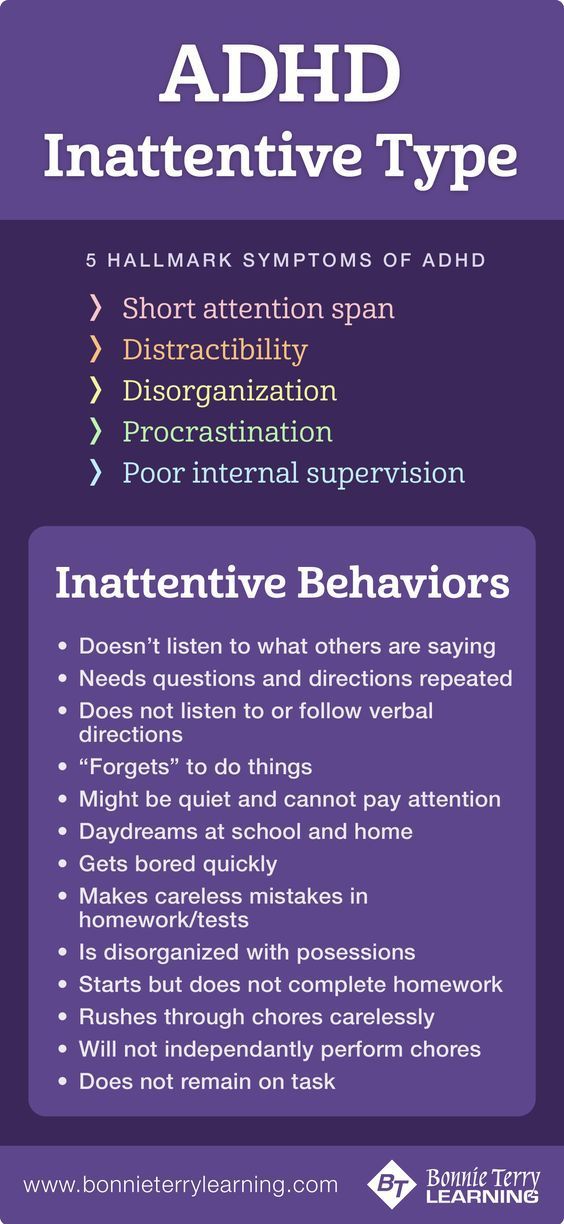 Its essence is simple: the upbringing of the child is entrusted entirely to the mother, i.e., to the “most important” person for him (in all respects: physiological, cultural, etc.). The father here, as a rule, is not an equal participant in upbringing, but some distant authority - not only for the child, but sometimes for the wife too. It does not affect the daily life of the child or affects very indirectly. Parental functions in such a family are much more strictly delineated than in a family where both parents combine professional and parental responsibilities. As a rule, the child does not go to kindergarten until the last pre-school year, and his socialization is mainly provided by the mother, making the child's connection with the outside world as complete as possible.
Its essence is simple: the upbringing of the child is entrusted entirely to the mother, i.e., to the “most important” person for him (in all respects: physiological, cultural, etc.). The father here, as a rule, is not an equal participant in upbringing, but some distant authority - not only for the child, but sometimes for the wife too. It does not affect the daily life of the child or affects very indirectly. Parental functions in such a family are much more strictly delineated than in a family where both parents combine professional and parental responsibilities. As a rule, the child does not go to kindergarten until the last pre-school year, and his socialization is mainly provided by the mother, making the child's connection with the outside world as complete as possible.
What causes it
This model is supported primarily by the conservatively oriented part of society, including religious institutions, which continue to remind about the inadmissibility of violating the traditional order, the pre-established distribution of family responsibilities, etc.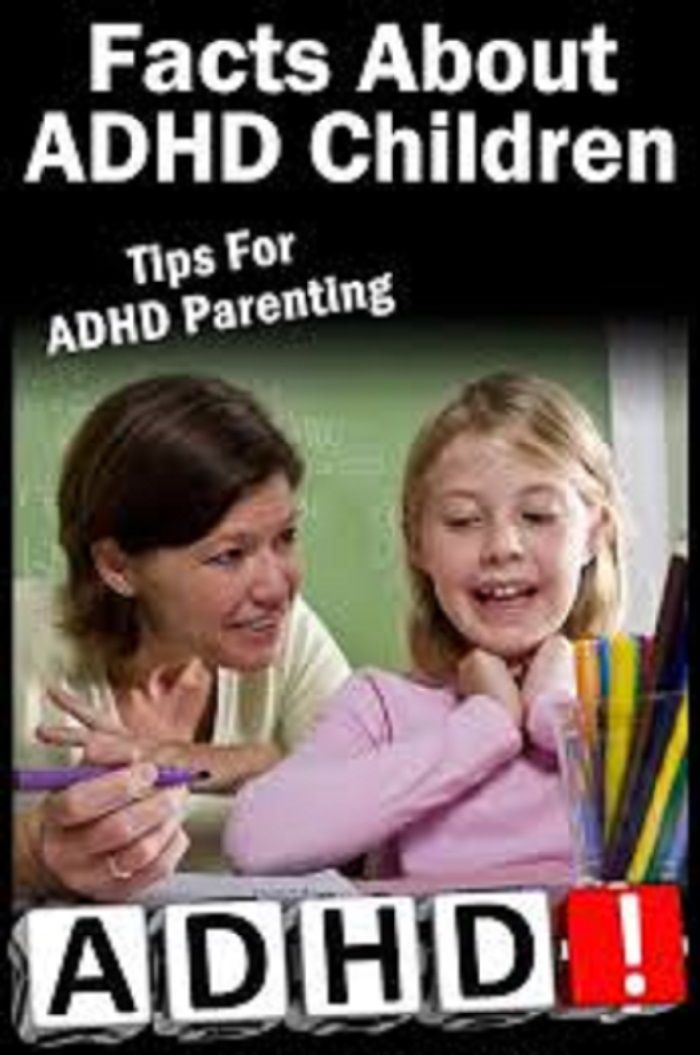 It can be evaluated as a protest reaction to "modern Western trends" and as one of the options for solving urgent demographic problems. However, one can also see here the realization of new opportunities for Russian society, the denial of the effectiveness of social institutions characteristic of the Soviet era with its compulsory employment. In the changed conditions, a fairly large number of women are willing to stay at home and take care of the upbringing of children.
It can be evaluated as a protest reaction to "modern Western trends" and as one of the options for solving urgent demographic problems. However, one can also see here the realization of new opportunities for Russian society, the denial of the effectiveness of social institutions characteristic of the Soviet era with its compulsory employment. In the changed conditions, a fairly large number of women are willing to stay at home and take care of the upbringing of children.
How dangerous it is
Psychologists can only welcome the involvement of parents (and, above all, mothers) in the upbringing of a child. Not fraught with anything dangerous and somewhat asymmetric participation of the spouses in the daily process of education. Problems arise only where we can talk about disharmonious marital relations and the internal trouble of the mother. Often, a woman's decision to devote herself to raising children may hide the already existing difficulties of social adaptation and self-realization.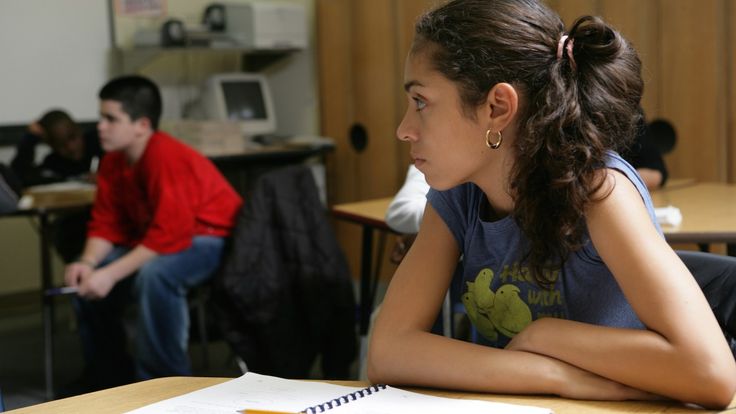 The upbringing of a child proves in a certain sense to justify this way of life. It also happens that a woman who has successfully built a career earlier is having a hard time with the social and professional infringement caused by motherhood. Obviously, in both cases, what psychologists call the projection of maternal anxiety and psychological distress on the child can occur.
The upbringing of a child proves in a certain sense to justify this way of life. It also happens that a woman who has successfully built a career earlier is having a hard time with the social and professional infringement caused by motherhood. Obviously, in both cases, what psychologists call the projection of maternal anxiety and psychological distress on the child can occur.
At the same time, hierarchical relations in the family are often such that the possibilities of mother's influence on the child are narrowed. A vicious circle ensues as the husband responds to difficulties in the parenting process in the simplest way: “it means you are not doing enough with the child” (although in fact this call to control the situation is addressed to someone who does not have real power).
At the same time, a woman can resort to powerful but inadequate means of influencing her husband, constantly referring to the child's troubles, especially his illness. This is how responsible husbands, ready to “create all conditions” for the family to “live and not know grief”, find themselves in a situation where something is always wrong with the child, and the mother just as constantly and stubbornly fights for his health, academic performance , physical development.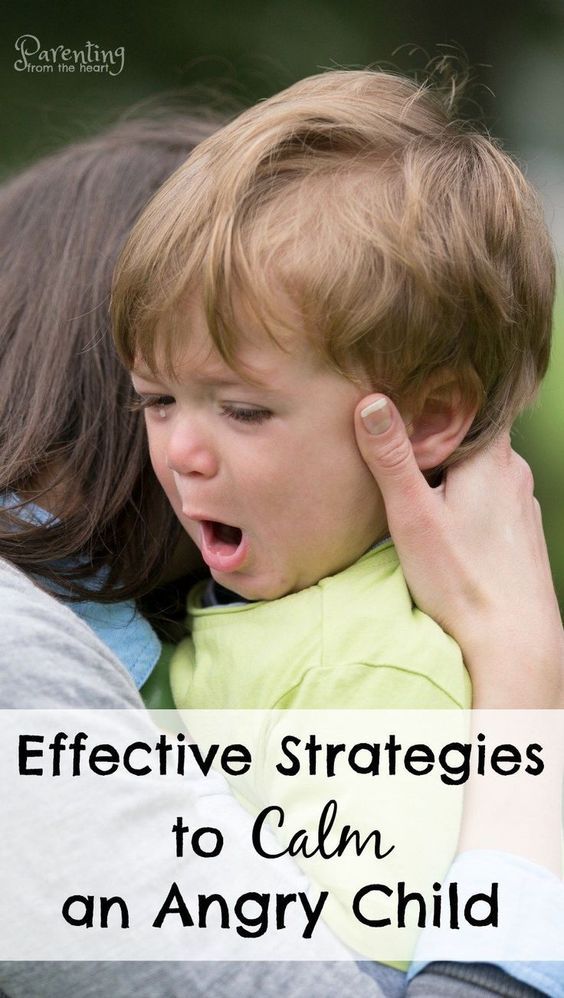
Possible help from a psychologist
The main thing here is to help find a more comfortable distribution of functions that takes into account the interests of both spouses, to strengthen the independence of both women and men (after all, certain psychological problems usually also lie behind its “principles”). It is necessary to overcome the existing “mother-child” coalition, replacing it with a full-fledged parental system of influence on the child, albeit with slightly different levels of participation of mother and father.
Strategy 6: “The main thing for a child is a grandmother!”
How it is expressed
All daily duties of caring for the child are transferred to the grandmother. She feeds the child, walks and, to the best of her ability, plays with him, picks him up from school, takes him to the sections and the music school, checks the lessons. Sometimes the child is handed over to the grandmother for the whole week, and he sees his parents only on weekends. It also happens that the child is relocated to the grandmother for several years, while the young family solves its problems. As expected, this is better than entrusting education to a "stranger". Grandmother, as it were, helps parents prolong their youth, freeing them from the excessive hardships of “the current difficult life” (which, however, has never been easy). In an incomplete family, the grandmother acts as the mother, and the young woman as the earning spouse.
It also happens that the child is relocated to the grandmother for several years, while the young family solves its problems. As expected, this is better than entrusting education to a "stranger". Grandmother, as it were, helps parents prolong their youth, freeing them from the excessive hardships of “the current difficult life” (which, however, has never been easy). In an incomplete family, the grandmother acts as the mother, and the young woman as the earning spouse.
What causes it
For an ordinary Soviet and Russian family of average income, this strategy is the simplest solution to both the problem of childcare and the housing problem. At a deeper level, one can speak of a multigenerational family as a traditional form of existence of the Russian family, dictating a special distribution of functions and a special hierarchy in which the weight of a grandmother can be very large. At the same time, parents, at best, are assigned the role of earning family members, temporarily taking care of the younger generation, at worst, the role of older children in a family where the grandmother turns out to be the center of organizing family life.
Why is she dangerous? at the same time, it enriches the child with valuable experience. However, the grandmother's excessive involvement in the life of the nuclear family leads to the fact that each of its members - the grandmother herself, and the parents, and the children - finds herself in a dual role position (after all, for the grandmother, the current parents are children) and the functional family hierarchy is violated. That is why the periodic attempts of young parents to take power into their own hands in such a situation are unsuccessful. The grandmother, who received the right to lead the life of a young family, differs from the nanny in her fundamental uncontrollability, since her “deeply related” participation is not of a technical nature and cannot be formalized.
Possible help from a psychologist
Leaving aside the obvious social aspect of the problem, we note that the work of a psychologist in this case involves "renewing the contract" for the participation of the grandmother in family life and the restoration of the strategic power of the parents.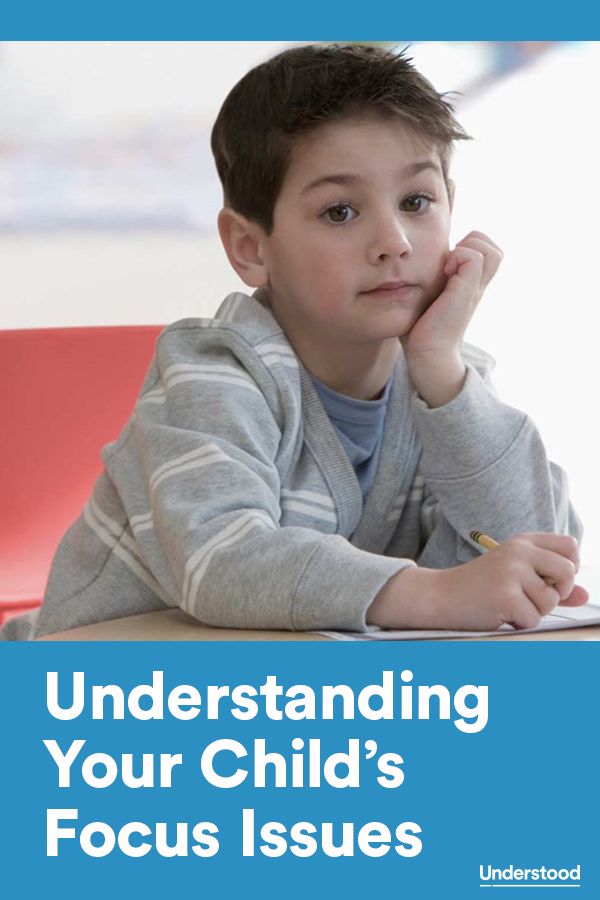 Often this means a return to the history of child-parent relationships of the middle and older generation. It is also necessary to help parents master the missing skills of managing the child and maintaining emotional contact with him. The restoration of such culturally alien concepts as the “private life” of a grandmother and the “private space” of a young family is also significant.
Often this means a return to the history of child-parent relationships of the middle and older generation. It is also necessary to help parents master the missing skills of managing the child and maintaining emotional contact with him. The restoration of such culturally alien concepts as the “private life” of a grandmother and the “private space” of a young family is also significant.
* * *
What can be said about the ideal parenting model from the point of view of a family psychologist? Apparently, it should combine the advantages of each of the strategies we have considered. Are there families in which adults use the help of professionals and at the same time clearly distinguish between the competencies of the “taker” and “giver”, take care of the success of the child and at the same time recognize his individual characteristics? Families that give the child something unique without isolating him from the world around him, respect him, but at the same time reasonably regulate his behavior, are able to ensure equally warm and full relations between the child and both parents, resort to the help of the grandmother as irreplaceable, but not a substitute for parents of a family member who can enrich the parenting strategy with their experience? Surprisingly, this ideal is quite achievable.